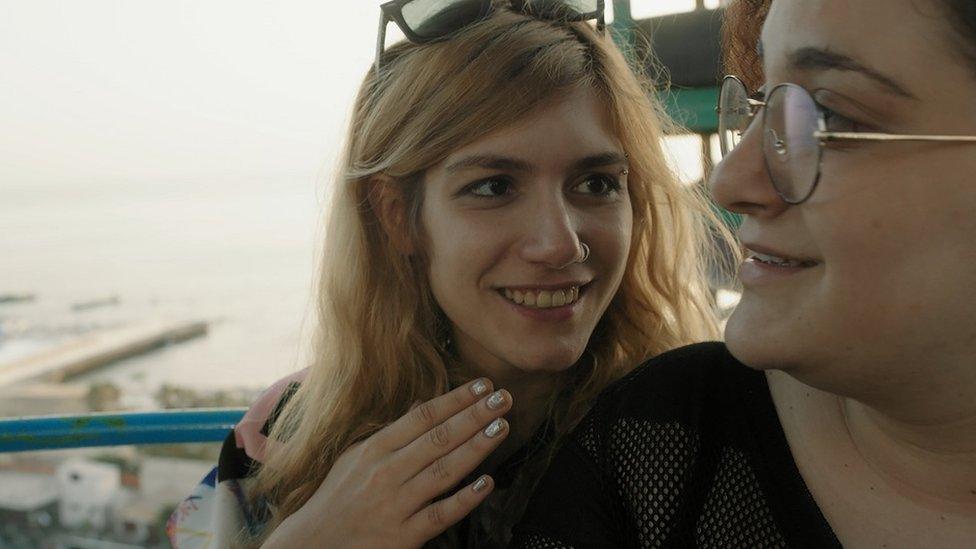Film: Welsh filmmakers shortlisted for Iris Prize
- Published
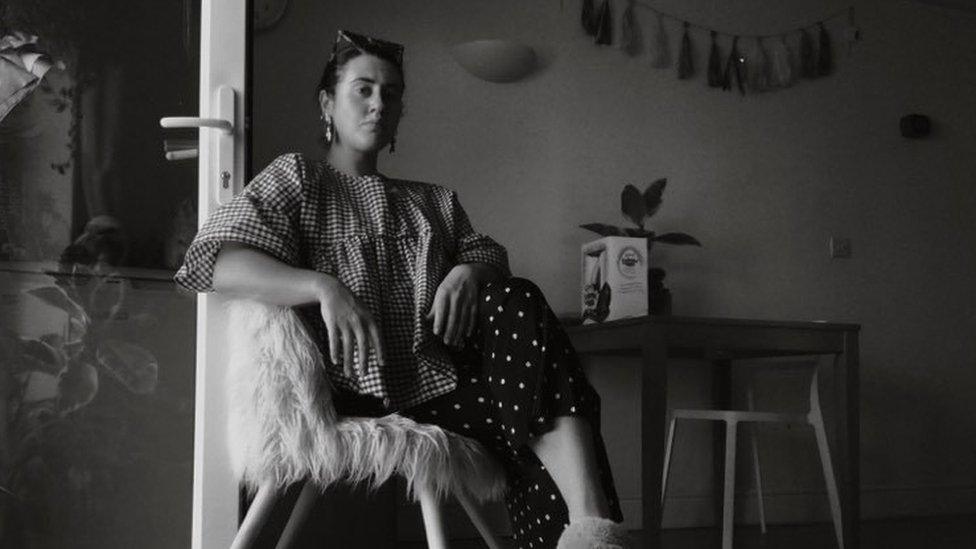
Anna Winstone's film, Rhiw Goch, had a budget of just £150
Two Welsh filmmakers have spoken of their joy of being shortlisted at this year's Iris Prize.
Anna Winstone who directed Rhiw Goch (On the Red Hill) and Ian Smith, who made Go Home Polish, made the final 15 for the Best Short category.
For the first time in the Cardiff LGBT+ film festival's history a film from the Netherlands was awarded the £30,000 prize.
Short Calf Muscle, by Victoria Warmerdam, was crowned the winner.
The organisers of the festival, which is now in its 14th year, said the money would allow the producer to make a new short film in Wales.
Winstone, 27, from Cardiff, said she was "screaming" when she learned her film had been shortlisted.
"Iris is such a big deal in the film world and for our short, whereby we borrowed a camera and only had a budget of £150, to have been selected was incredible, I thought they had made a mistake," said Winstone.
Her documentary tells the story of a gay couple, Mike and Peredur, who inherit a house just outside Machynlleth, Powys, from an older gay couple George and Reg. The story is of the house - their sanctuary.
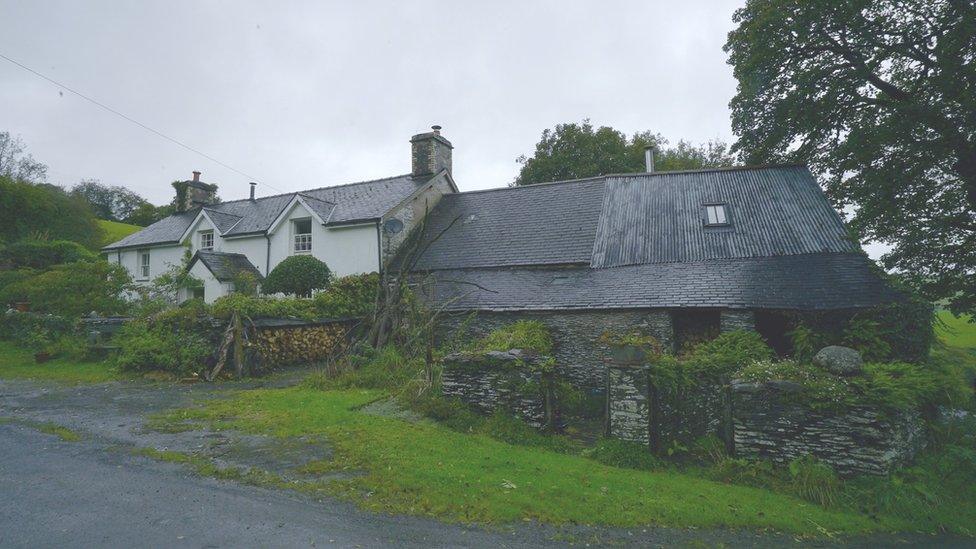
Winstone said the story in her documentary was "of this Welsh farmhouse passed down a generation, thanks to an unlikely friendship"
This story came to Winstone by chance when she "stumbled across the tiny article about Mike Parker" while bookmarking "weird and wonderful" stories in newspapers.
"I read it and I just thought it was incredible and I just saved it, I fell in love with it," she said.
She contacted Mike and drove up to mid Wales, spending the day with the couple.
"When George and Reg's relationship began, homosexuality was still illegal. For years and years they went through such hardship to then being able to get civil partnered.
"The law that said their relationship was criminal no longer existed and they had the right to be partners and live legally, as such, the house was their safe place."
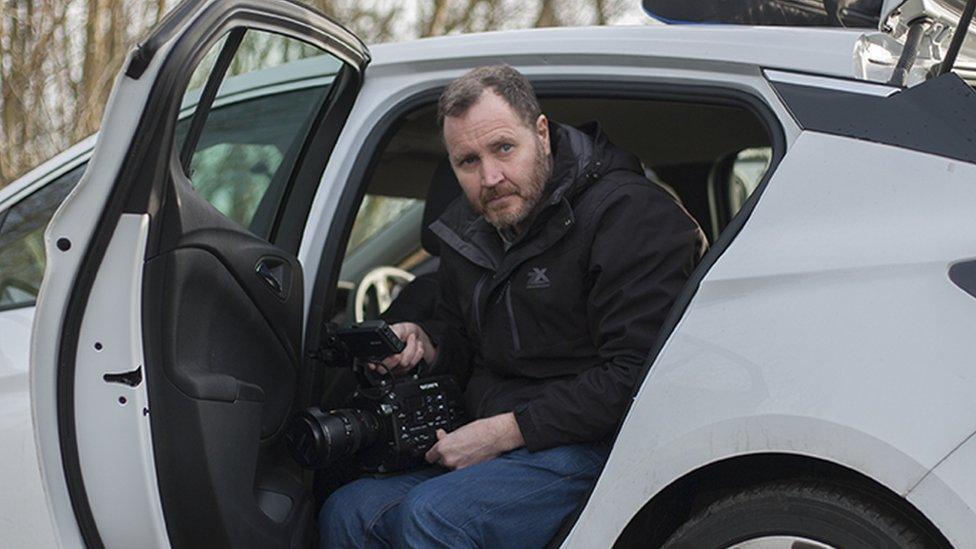
Ian Smith was one of 15 filmmakers competing for a package of services from Pinewood Studios
Smith, from Cardiff, made Go Home Polish, a documentary about a photographer who begins a 1,000 mile (1,600km) walk back to his birthplace, after he sees graffiti scrawled on a backstreet wall demanding "Go Home Polish".
He said: "I had known Michal Iwanowski for a while, and when he saw the graffiti he was really angry and struggled, questioning what does home mean? Where is home? 'They don't want me here and they don't want me in Poland?'
"And when he said he was going to walk from his home in Cardiff to Poland, it was an opportunity not to miss, although I didn't know what film I was making. Was he going to get attacked? Break his leg?
"I just knew the impact xenophobia had had on Michal, it just became a really important story that I wanted to make."
He said being shortlisted had been "a win in itself", but it would have been "incredible" to take the prize.
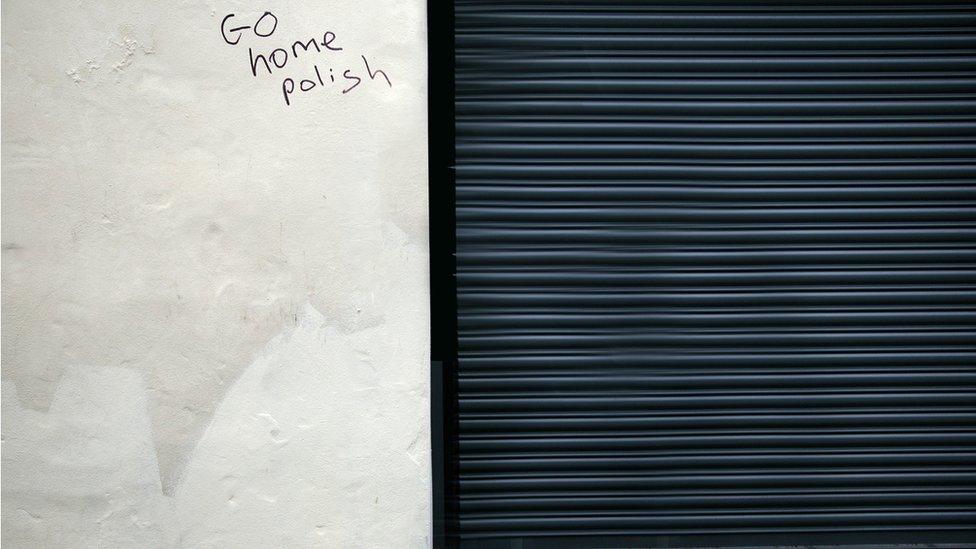
This is the graffiti that spawned Smith's documentary
This year - the festival's 14th - the prize was sponsored by Film4, meaning all of the best of British shortlisted films had been available to watch on All4.
The festival, which opened on Tuesday and runs until Sunday, has been free and online for the first time due to coronavirus.
Winstone said she was "gutted" the physical festival was not happening, but the fact films were online meant "people who wouldn't usually hear queer stories could be educated and learn about the LGBT+ community".
Smith agreed, saying the wider audience presented "a great opportunity".
- Published13 October 2019
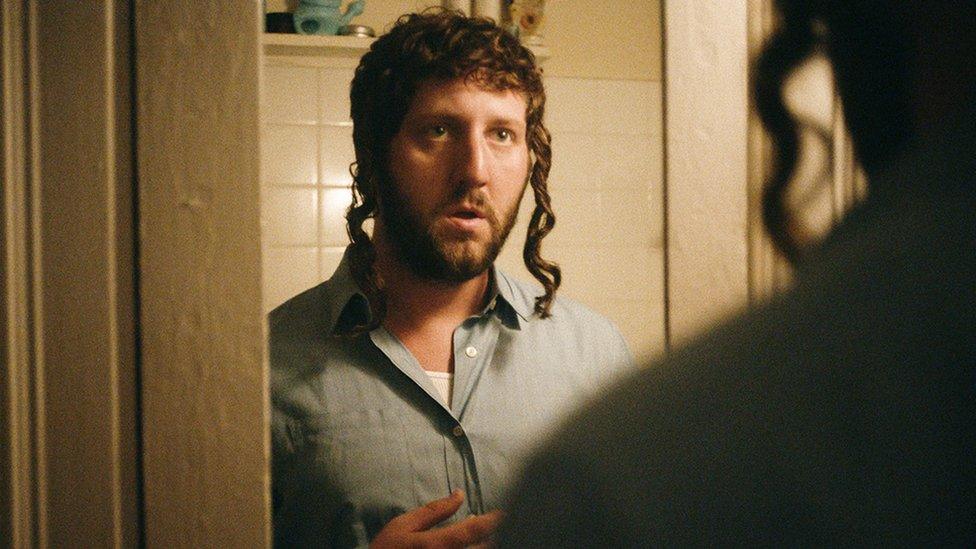
- Published17 October 2016
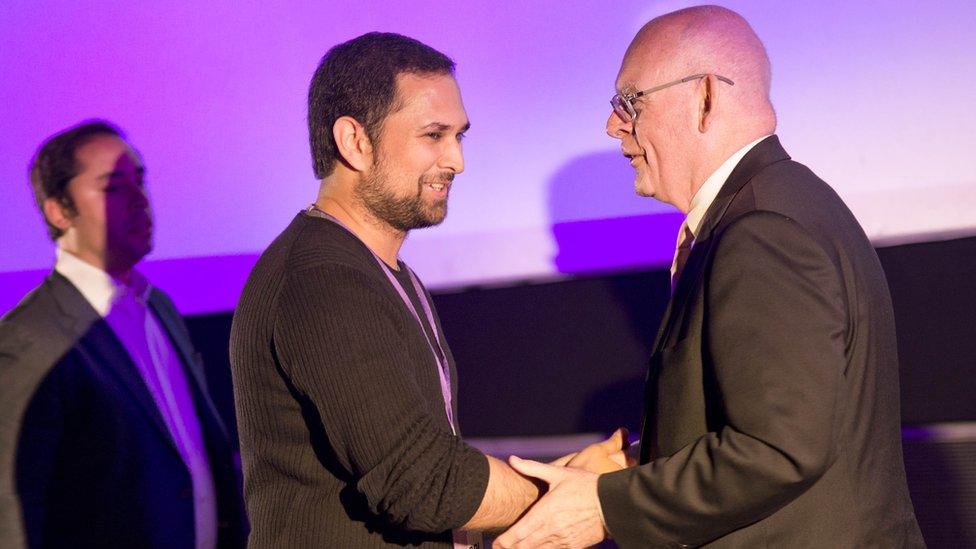
- Published14 October 2018
